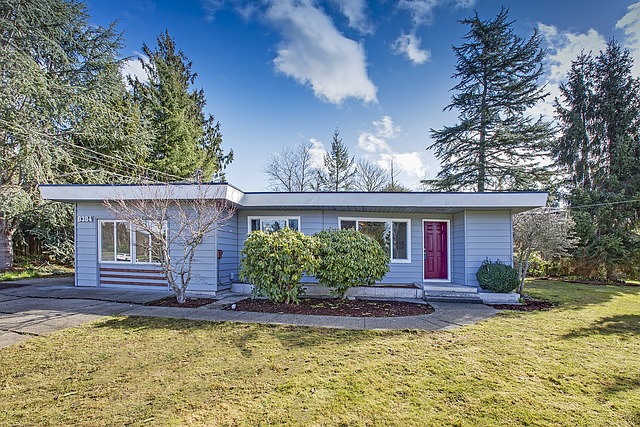Multifamily Loans Denver: Navigating Options, Trends & Risks
In Denver, understanding multifamily loan options is crucial for investors due to a booming economy…….

In Denver, understanding multifamily loan options is crucial for investors due to a booming economy and high housing demand. Loan types include conventional, FHA/VA-backed, and specialty loans for established or new construction properties. Interest rates are influenced by local economic factors, federal policy, term, creditworthiness, and market competition. The approval process involves rigorous financial and property analyses, with well-prepared applications enhancing chances. Investing in Denver's multifamily market offers stable income and potential high returns, but challenges include property maintenance and market fluctuations. Trends show increased demand, booming economy, and diversifying financing options through private lenders.
“Explore the dynamic world of real estate financing, with a focus on multifamily loans in Denver. This comprehensive guide breaks down the complex landscape for investors, offering insights into various loan options and market trends shaping Denver’s property scene. From understanding interest rate influencers to navigating application procedures, we delve into the benefits and risks of multifamily investments. Whether you’re a seasoned investor or new to Denver’s real estate market, this article provides valuable knowledge for successful financing.”
- Understanding Multifamily Loan Options in Denver
- Factors Affecting Interest Rates on Real Estate Financing
- The Application Process for Denver's Multifamily Loans
- Benefits and Risks of Investing in Multifamily Properties
- Market Trends Shaping Real Estate Financing in Denver
Understanding Multifamily Loan Options in Denver

In Denver, understanding multifamily loan options is crucial for investors looking to navigate the vibrant real estate market. The city’s booming economy and high demand for housing create a favorable environment for multifamily property investments. There are several types of loans available tailored specifically to meet the needs of investors in this sector, including conventional loans, government-backed loans like FHA and VA financing, and specialty loans offered by local banks and credit unions.
Denver’s diverse real estate landscape presents various opportunities for multifamily loan strategies. Investors can choose between purchasing established properties or funding new construction projects. Lenders often consider factors such as the property’s location, income potential, occupancy rates, and market trends when evaluating loan applications. With careful consideration of these options, investors can secure financing that aligns with their goals, enabling them to contribute to Denver’s growing multifamily housing stock.
Factors Affecting Interest Rates on Real Estate Financing

The interest rates on real estate financing in Denver, particularly for multifamily loans, are influenced by a multitude of factors. One key determinant is the overall health and direction of the local economy. A thriving Denver market with low unemployment and strong property values will generally result in lower interest rates, as lenders perceive less risk. Additionally, the demand for multifamily housing plays a significant role; high demand can drive up borrowing costs due to increased competition for funds among investors.
Another crucial factor is the current monetary policy set by the Federal Reserve. When the Fed raises or lowers the federal funds rate, it has a ripple effect on various loans across different sectors, including real estate. Furthermore, the type of loan, its term, and the borrower’s creditworthiness all contribute to the final interest rate. For instance, longer-term loans often come with higher rates compared to shorter-term financing options. Lenders also carefully consider the property’s location and market trends when setting rates, as Denver’s competitive real estate scene demands dynamic pricing strategies.
The Application Process for Denver's Multifamily Loans

In Denver, securing a multifamily loan involves a structured application process designed to evaluate potential investors’ financial health and project viability. The first step is to prepare comprehensive financial documentation, including tax returns, personal and business financial statements, and detailed income verification. This ensures lenders can assess your ability to repay the loan. Additionally, a thorough property analysis is conducted, examining the multifamily property’s value, rental market trends, and potential for generating stable cash flow.
Lenders will review your application to ensure you meet eligibility criteria specific to Denver’s multifamily loan programs. These may include requirements related to the property type, location, and intended use. A well-prepared application, supported by solid financial backing and a compelling property analysis, significantly increases the chances of approval for a multifamily loan in this competitive market.
Benefits and Risks of Investing in Multifamily Properties

Investing in multifamily properties, such as apartment complexes or low-income housing, offers several advantages for real estate investors in Denver and beyond. These assets are typically considered less volatile than single-family homes, providing a steady income stream through rental payments. Multifamily loans in Denver often come with lower interest rates compared to other property types, making them an attractive option for long-term investors. The potential for high returns is significant due to the ability to generate substantial cash flow from multiple units and the growing demand for affordable housing in many urban areas.
However, there are risks associated with this type of investment. Market fluctuations can impact rental rates, and maintenance costs may be higher than expected. Additionally, managing a multifamily property requires dedicated time and expertise, which could be challenging for individual investors. The Denver real estate market is competitive, and finding the right property at an affordable price might prove difficult. Investors must conduct thorough research and consider the local economy, employment rates, and demographic trends to mitigate these risks effectively.
Market Trends Shaping Real Estate Financing in Denver

Denver’s real estate market has been experiencing significant trends that are reshaping financing options, particularly for multifamily properties. The city’s booming economy and population growth have fueled a strong demand for housing, driving up property values and attracting investors seeking lucrative multifamily loan opportunities in Denver. This surge in interest has led to competitive lending environments, with low-interest rates and flexible terms becoming increasingly hard to come by.
One notable trend is the rise of private lenders and alternative financing methods. With traditional banks becoming more stringent in their lending criteria, many developers and investors are turning to non-traditional sources for multifamily loan denver funding. These alternatives offer speed and flexibility, allowing for quicker project launches and adaptations to the ever-changing market dynamics. As a result, Denver’s real estate landscape is becoming more diverse, with a mix of institutional and private capital driving development and shaping the city’s residential infrastructure.
Investing in multifamily properties through loans in Denver offers a unique blend of benefits, such as steady rental income and potential capital appreciation. However, it also comes with risks, including market fluctuations and property maintenance costs. Understanding the right financing options, navigating the application process, and considering the factors that influence interest rates are key to making informed decisions. With Denver’s thriving real estate market, staying abreast of market trends will help investors capitalize on opportunities while mitigating potential drawbacks, ensuring a successful investment journey in multifamily loans.







